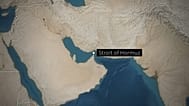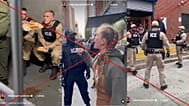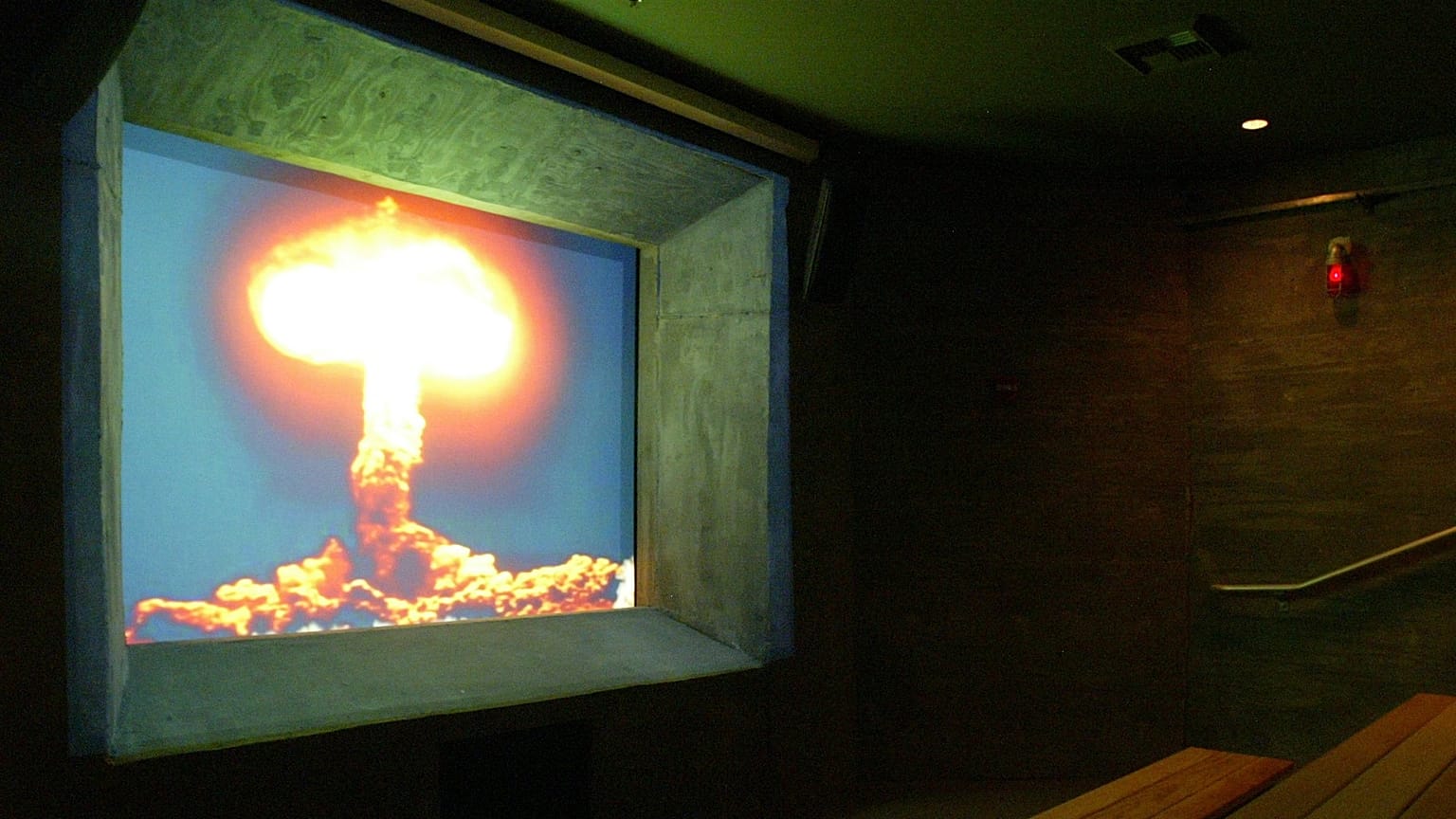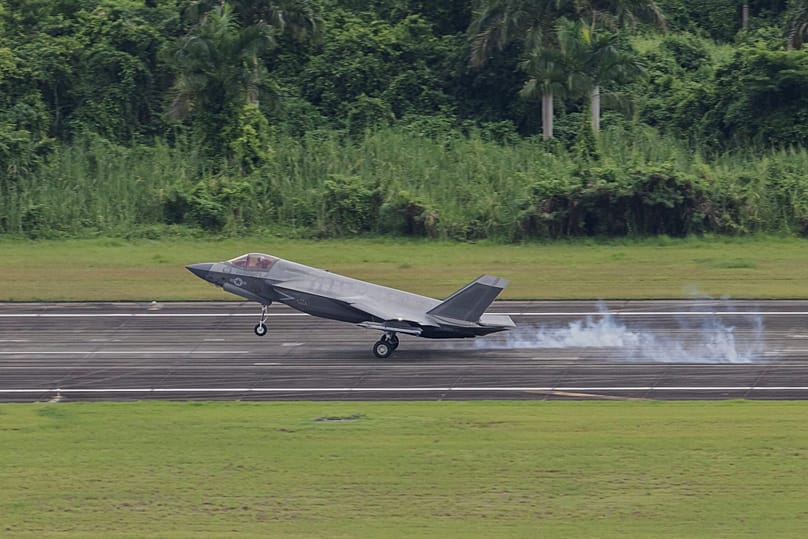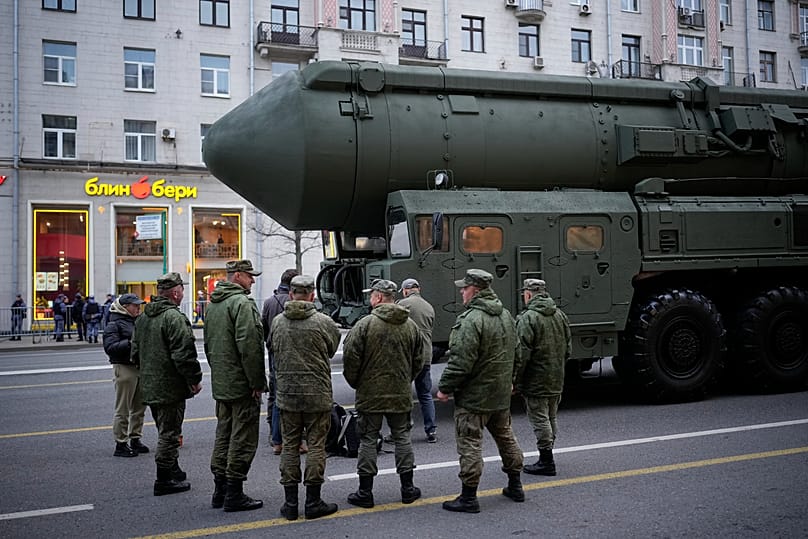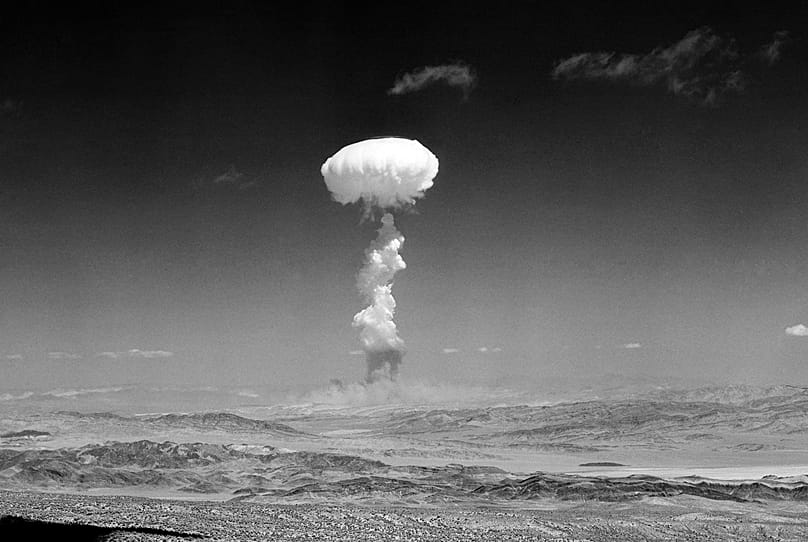Germany stores around 20 US nuclear weapons at an air base in Rhineland-Palatinate, part of Washington's security guarantee to Europe that faces growing uncertainty under US President Donald Trump.
Germany stores about 20 US nuclear weapons as part of Washington's security pledge to Europe, but doubts over President Donald Trump's commitment to NATO have raised questions about the arrangement's reliability.
 ADVERTISEMENT
ADVERTISEMENT
 ADVERTISEMENT
ADVERTISEMENT
The B61 bombs, designed for delivery by fighter jets, are held at Büchel Air Base in Rhineland-Palatinate and were recently modernised, according to security experts.
The issue came to the fore as the Bundeswehr marked its 70th anniversary in Berlin on Wednesday amid growing security concerns across Europe.
"It has never been and cannot be certain that the US will actually deploy nuclear weapons. It is not a guarantee. But the important thing is that the enemy cannot rule it out," said Karl-Heinz Kamp, a security expert and former president of the Federal Academy for Security Policy.
Kamp, a former NATO advisor and now an associate fellow of the German Council on Foreign Relations, added that deterrence "has held up so far, for 50 years."
'Whoever shoots first, dies second'
The US reportedly brought new nuclear weapons to Europe over the summer, several US media outlets reported, citing flight routes and purchases of F-35 fighter jets capable of carrying tactical nuclear weapons. US authorities have not confirmed the reports.
Germany has ordered F-35 jets with the first due for delivery in 2026.
US nuclear weapons have been stored across Europe since the Cold War to deter potential attackers such as Russia. The exact number remains classified but is estimated at around 100 across Belgium, the Netherlands, Italy, Turkey and the UK.
Russian President Vladimir Putin has repeatedly threatened to use nuclear weapons since launching his invasion of Ukraine. Russia has about 5,450 nuclear warheads, according to estimates.
Kamp doubted Putin would give the order to use them. "Whoever shoots first, dies second. That is not a desirable state of affairs."
Own nuclear weapons 'not rocket science'
Germany could station more US weapons at various locations equipped with storage vaults, or NATO could relocate them to the Baltic states, Poland or Romania to send a signal to Russia, Kamp said.
Anti-nuclear groups including ICAN Germany have called for the withdrawal of US weapons from German soil.
Germany could theoretically produce its own nuclear weapons, in what Kamp said was "not rocket science" for any technologically advanced nation.
However, such a move would be politically disastrous given Germany's historical responsibility.
Two treaties prohibit Germany from possessing nuclear weapons: the 1990 Two Plus Four Treaty signed after reunification, and the 1969 Nuclear Non-Proliferation Treaty. Germany could withdraw from both but this is politically and socially unlikely.
Only about a third of Germans support developing nuclear weapons, polls show.
Germany would remain protected within NATO by French and British nuclear arsenals even without US weapons, analysts said.



